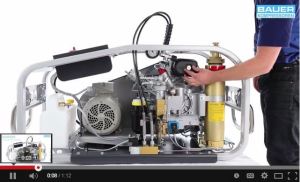Last time I figured this out (
https://scubaboard.com/community/threads/lot-of-complaining-goin-on.16999/page-5#post-9732812) I was paying $15 per fill. Notice that I have $6000 for the acquisition cost for my compressor. That was $4000 for the compressor itself (a 6CFM Bauer-based compressor with autodrains), plus $2000 in other things that I figured out I needed along the way: extra fill nozzles, a long hose so I don’t have to haul tanks 100 feet each way every time I fill the tank, lots and lots of fittings, O2 and CO monitoring, etc. It doesn’t include things that might be considered optional, like the 12 bank bottles I have sitting there. It also includes the $50 a year I pay in compressor oil, the $150 or so I pay for filters per year, etc. And I simply ignored the electricity use.
Could you do it for less? Maybe. You can’t do it for half, which means you’re gonna be paying that same $10 per fill at a minimum. And that’s after roughly a decade of ownership.
Please, please accept the acquired wisdom from the many people who own their own compressors: you will not save money with it.
@clownfishsydney is the only exception to that wisdom that I’m aware of. And the biggest reason is he has a small — but not too small! – and top-quality compressor, that he uses the heck out of. He does hundreds of dives a year. And that’s what drives the cost-per-fill down.
So, if you’re doing hundreds of dives a year, and you buy a small yet very high-quality compressor, you might be able to save some money. Otherwise… Don’t fool yourself.
Now, the convenience is great. The fact that you know exactly what the air quality is is great. The ability to pump nitrox almost as easy as air (but with additional expense!) is great. There’s lots of great reasons. But cost is not one of them.





